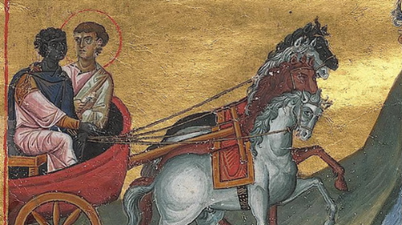 There are so many things that are going on in this world, it is often hard to make sense. Whether it is gun violence, immigration, discrimination, or even political discourse, I believe that the underlying problem of our society is the fact that we have dehumanized our neighbors to the point where we can make the assertion that one life is better than another. If we really want to be honest about the Ten Commandments, all of them are about being part of the community and respecting others for who they are, and looking inward to ask ourselves how we are embodying the faith that we are called to follow. It is noteworthy that within the Ten Commandments themselves, there is no judgment, just an expectation of how we are called to live. So, when I was asked to host the Transgender Day of Remembrance in November, I said yes without hesitation. As I walked through the sanctuary, my heart was pained because hanging on the walls were pictures of transgendered people who had been murdered or committed suicide. These were people others had decided were subhuman or not whole—so much so, they could judge them and either exterminate them or force them to kill themselves. What was so disturbing was knowing the history and the role faith has played in so much of that judgment. Judaism, Christianity, and Islam have historically had real issues with accepting people of sexual minorities. In our tradition, this discrimination is mostly based in theological writings and practices that are not biblically based. In fact, the “biblical” insights that discuss sexual minorities are a very small number of passages. The interesting thing about those passages is that their interpretation is often taken out of the context in which they are found. For example, the decree in Leviticus is not in the sections on sexuality, but in the religious practice section, alluding to other common religious practices where sex was regularly part of worship. It is interesting that our denomination, and most mainline churches for that matter, split over these interpretations. What makes it all the more interesting is the story of the Ethiopian eunuch[1], the first gentile baptized. It was fairly common that royalty would have eunuchs in their court. Often they would have fairly high positions, as is the case in this story, where this man was a court official to the queen. What I find most interesting thing about the story of the Ethiopian eunuch is how unremarkable it is. At its core, it is merely a story of a man struggling with scripture. The Spirit guides Philip to engage the man, they have a Bible study of sorts, the man comes to believe and is baptized. As you can see, it is fairly routine. Many of us have had similar experiences when sharing the Good News of Christ. What makes this story so remarkable, beyond the fact that this was the first baptism of a non-Jew, was that he was a sexual minority that would have been excluded from most religions at that time. Some write it off a coincidence, but the Bible always has a deeper meaning in what it is doing. Here it is clear that the point the Bible is making is that no matter where someone is coming from, they can be welcomed into the faith. This is one of the great tensions of faith: we have to name our prejudice and admit that it is based in our desire for power and control in this world. Unfortunately, the more power and control we have, the more our egos make us act like we are gods ourselves, determining who is worthy and who is not. It is interesting that my father, who grew up in a very conservative German Lutheran (now Missouri Synod) church, believes that if someone asks to be baptized, they should be baptized right away and that any believer should be able to do it, because it’s ultimately God, not the individual that is doing the baptism. I tend to agree, but this is dangerous, because it means that we have to trust that the Spirit is really at work and put aside our prejudice. We are called to be the church, a church that is not guided by the whims of individuals but by the discernment of the Holy Spirit—a Holy Spirit that calls us to welcome all, especially the Ethiopian eunuch. In Christ, Bryan [1]A eunuch is a male who has been rendered incapable of procreation through some form of castration. Picture is from wikipedia.com and is an Illustration from the Menologion of Basil II of Philip and the Ethiopian eunuch.
0 Comments
Leave a Reply. |
AuthorRev. Dr. Bryan James Franzen Archives
September 2018
Categories |
 RSS Feed
RSS Feed